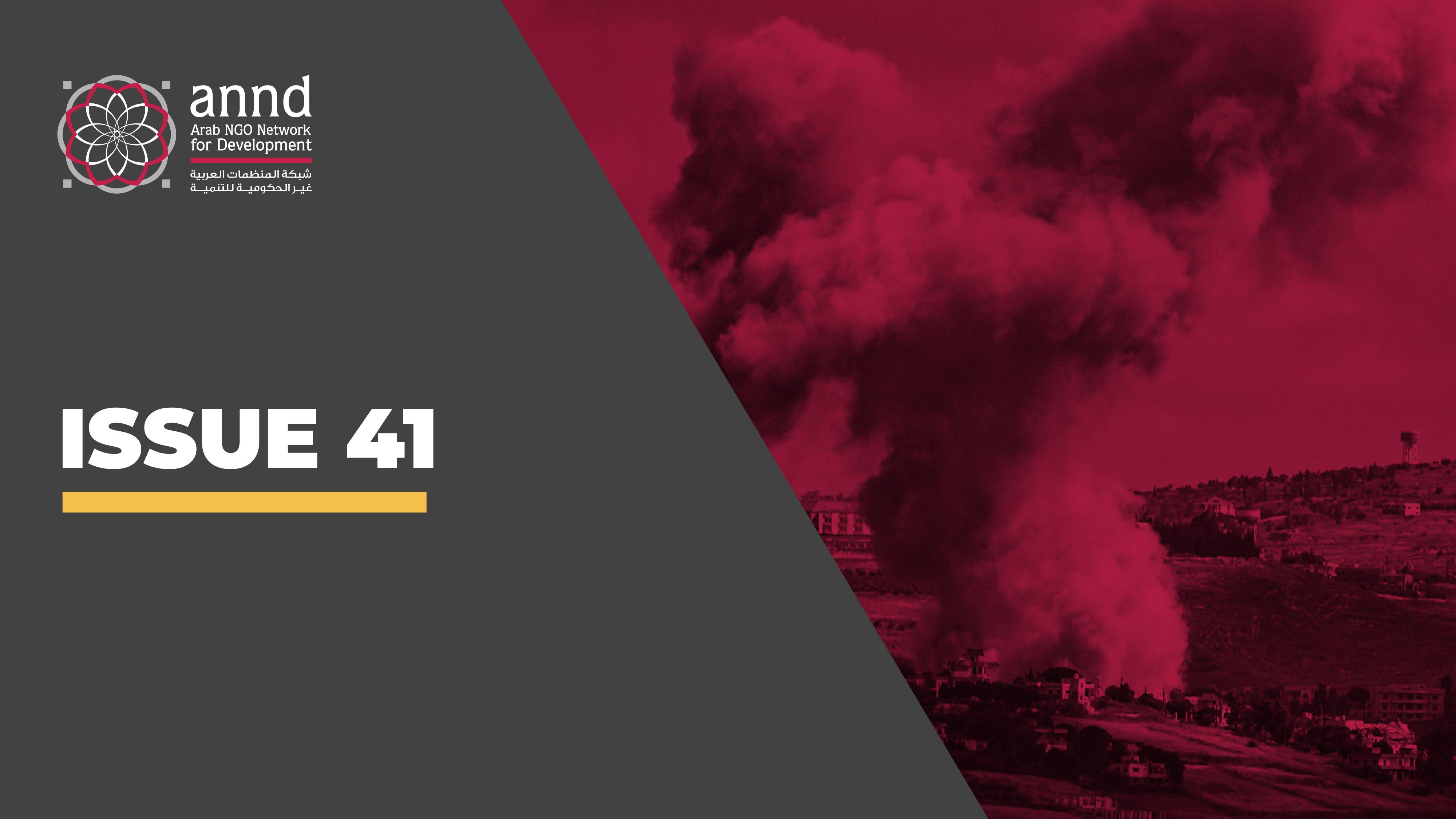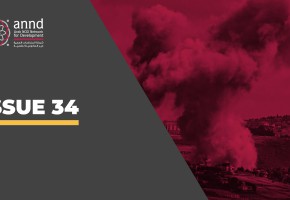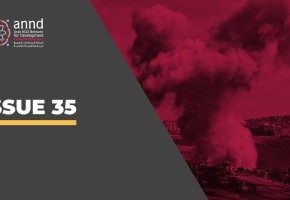
A Region on Fire
Issue 41 - November 6, 2024
Netanyahu congratulates Trump on his historic comeback to the White House and escalates with more airstrikes, including targets in Beirut’s southern suburb.
All indications show that the war on Gaza and Lebanon will continue, likely intensifying after, recent changes in in Israel’s government. Israel is satisfied with Trump’s re-election, with Netanyahu expressing strong support. Tensions between Iran and Israel shift between calming statements and severe threats, hinting at possible new strategies after the U.S. election. Each side is focused on its internal situation: Netanyahu has secured his government, while political interests shape responses in Iran, Lebanon, and Palestine as they prepare for possible outcomes and post-war plans.
Israel hits Gaza with the equivalent of six Nuclear Bombs
Since October 7, 2023, Israel has dropped over 85,000 tons of explosives on Gaza—equivalent to six nuclear bombs and more than the tonnage used in World War II. The Palestinian Environmental Quality Authority highlighted this on the International Day for Preventing Exploitation of the Environment in War. The continuous bombing has devastated farmland and polluted soil with toxic chemicals, making the land unusable for years. Israel has used various weapons, including white phosphorus, which is banned internationally for its harmful effects on people and the environment.
Damaged water infrastructure has allowed polluted water to seep into groundwater, threatening the health of hundreds of thousands for generations. Earlier this year, the Palestinian Ministry of Health found toxic heavy metals, including uranium, in war victims' bodies at dangerously high levels. These toxins have led to birth defects, miscarriages, and infertility.
The UN’s humanitarian office reports that Israel has blocked aid teams from delivering food to Gaza’s northern areas for almost a month. Due to shortages, over 100 kitchens producing 400,000 meals daily are at risk of closure.
In northern Gaza, Kamal Adwan Hospital was bombed twice, and supplies were denied to Al-Awda Hospital. UNICEF’s regional director, Adele Khodr, condemned attacks on healthcare, especially on neonatal units. Kamal Adwan’s neonatal intensive care unit is now the only one left in the north. Khodr stressed that reaching the hospital is “extremely difficult” and noted that children have died or been injured in recent attacks. UNICEF estimates that at least 4,000 children in Gaza have lost access to critical neonatal care due to ongoing attacks, power outages, and fuel shortages.
Special Session of the UN General Assembly
The United Nations General Assembly held an informal meeting on the UN Relief and Works Agency for Palestine Refugees (UNRWA), which now faces new Israeli laws banning its operations in the occupied Palestinian territories. This meeting comes amid escalating airstrikes in Gaza and Lebanon. Key statements included:
- Lebanon's UN representative stated that the Arab group condemns Israel’s ban on UNRWA staff receiving international organization immunity.
- Palestine’s UN representative declared that UNRWA deserves full international support.
- The UNRWA Commissioner-General warned that dismantling the agency would cost over $500 million in staff compensation. He added that UNRWA faces direct attacks from the Israeli military, and its collapse would mean a breakdown in humanitarian aid, especially as Gaza faces its heaviest bombing campaign since World War II.
Battlefield Developments in Lebanon
Israel continues to launch deadly attacks on Lebanon. The Lebanese Ministry of Health reported that the death toll from an Israeli airstrike on the town of Barja (Chouf District) has risen to 30, with 14 injured.
Rescue operations are ongoing. Later, Israel targeted a house sheltering four families in the town of Al-Ain in the Bekaa Valley, resulting in 13 deaths.
Israeli airstrikes have continued across various regions of Lebanon. The Israeli military spokesperson, Avichay Adraee, issued warnings to residents in certain areas of Nabatieh and Beirut’s southern suburb, urging them to evacuate immediately. On Wednesday evening, Israel carried out its threats with four airstrikes on Beirut’s southern suburb.
In Baalbek, Governor Baalbek-Hermel reported that Wednesday's strikes left 30 dead and 35 injured. The strikes also caused minor damage to the nearby ancient Roman ruins.
For the first time in this conflict, an Israeli balloon and an active presence of drones were observed over the Bekaa region, especially near the Baalbek area along the eastern mountain range.
Hezbollah claimed it had repelled an attempted Israeli infiltration along the Ain Ebel - Al-Qouzah axis, inflicting casualties on Israeli forces. Hezbollah continued to retaliate, launching rockets, drones, and artillery shells targeting Israeli military sites and troop gatherings.
Israel's Channel 14 reported that in the latest round of rockets from Lebanon, one missile from Hezbollah hit near Ben Gurion Airport, damaging a Boeing 777 aircraft. Later, Hezbollah confirmed targeting the Tzrifin base near Ben Gurion Airport with a barrage of rockets.
Israeli media reported that 13 Israeli soldiers were injured on the northern front with Lebanon in the past 24 hours.
In a field assessment meeting, Israeli Chief of Staff Herzi Halevi stated that Israel is preparing plans to continue operations in Lebanon, including expanding the ground maneuver if necessary. He emphasized that Israel will keep targeting Hezbollah from southern Lebanon to Bekaa, Beirut, and even Syria.
Satellite images from Planet Labs revealed extensive destruction in the Lebanese towns of Mays al-Jabal and Aita al-Shaab, showing that entire areas were erased due to the heavy Israeli bombardment.
Political Developments
The Council of Ministers convened on Wednesday with a 24-item agenda, prioritizing the recruitment of 1,500 soldiers. This force would be deployed in southern Lebanon to implement U.N. Security Council Resolution 1701 after a ceasefire.
Prime Minister Najib Mikati emphasized the urgent need to elect a President, calling it a constitutional responsibility that all parties must uphold. He stressed the importance of dialogue among political leaders to reach consensus for this election. Mikati also condemned the ongoing war on Lebanon, holding the international community responsible for halting it.
Hezbollah’s Secretary-General, Naim Qassem, stated that the resistance would remain strong and victorious, backed by three main factors: a firm Islamic faith, fearless fighters, and Hezbollah's preparedness in weaponry and training. He said Netanyahu’s war on Lebanon aims to eliminate Hezbollah, occupy Lebanon, and reshape the Middle East. Qassem emphasized that only battlefield resistance could end this war, declaring that Hezbollah would not plead for peace, but rather Israel would, as the resistance prevents it from achieving its goals. He added that any negotiations should be based on a ceasefire and safeguarding Lebanese sovereignty. He also called for clarity from the Lebanese Army and UNIFIL on the recent Batroun incident, urging them to disclose details of the event.
The Maronite bishops, in their monthly meeting, called for enforcing Resolution 1701 as a step toward the return of displaced persons to their homes. They also condemned Israel’s violations of Lebanese sovereignty, including a recent sea raid in Batroun that ended in the kidnapping of a Lebanese citizen from his residence.
Saudi Ambassador to Lebanon, Walid Bukhari, reaffirmed Saudi Arabia's support for the Lebanese Army following his meeting with Army Commander General Joseph Aoun, during which they discussed the general situation in Lebanon amid the ongoing Israeli aggression.
Humanitarian Response
According to the UN Office for Coordination of Humanitarian Aid, the death toll since October 8, 2023, is now 58% higher than the 1,900 deaths reported during the 34-day conflict in 2006 between Israel and Hezbollah. The office warned of a worsening humanitarian crisis due to intensified Israeli airstrikes and evacuation orders, particularly in areas like Haret Saida in southwest Lebanon and Baalbek in the east.
A WHO official emphasized the urgent need to continue supporting Lebanon’s only burn treatment center. Of the 40 patients treated so far, 25% are children.
Nasser Yassin, head of the government’s emergency committee and Minister of Environment, presented a response plan to the council of ministers. He announced that an advance for oil facilities to supply heating fuel to 541 shelters located above 300 meters altitude was approved. Yassin thanked neighboring countries for their support, noting that over 28,000 aid parcels have been distributed via local governors. He confirmed that details of the aid efforts are transparently available online and that work continues on implementing the Paris Conference resolutions.
Minister of the Displaced, Issam Sharafeddine, reported that 400,000 Syrian refugees have returned to Syria as of last week.
A Kuwaiti aid plane arrived at Beirut airport carrying 30 tons of medicines, health supplies, and medical equipment as part of an emergency relief campaign for the displaced in Lebanon.
International Developments
The Pentagon announced that it will continue to work closely with Israel's next Defense Minister, noting that the former minister, Galant, has been a “trusted partner”.
According to Axios, U.S. officials have warned the Iraqi government that if it doesn’t prevent an Iranian attack from its soil, it could face an Israeli attach on its territory.
Recent publications



